But with Sir Leon’s fine castle and finer foods he doesn’t feel the pinch of winter like his peasants do. Not that Robin points that out to him. No Robin replies that they think alike. Of course that’s not true. Robin’s lines as Sir Roger are a mockery of the racist and rapacious lines said by many of the evil lords in the shows. Robin’s Sir Roger speaks in nothing but clichés. And there’s such joy in the portrayal – Robin Hood is getting a kick out of sending up the upper class buffoons, and actor Richard Greene seems to relish the opportunity for comedy here to. Greene pitches delivery broadly, so no child would be confused and mistake Robin’s trickery for sincerity. But the performance enhances the show with a light comic touch. This Robin Hood is a far removed from the "full-blooded medieval brigand" (to borrow historian Maurice Keen's turn of phrase) but he's also more than - to use Stephen Knight's mostly apt description of Greene's Robin, "Squadron Leader Robin Hood." There's still a trickster spirit in this Robin Hood, even if it manifests itself as almost boyishness. Greene is like a child pretending to be a grown-up in the scene, and it's very appealing.
Robin now takes out the promised gift – the Christmas cake that we saw Derwent preparing earlier. Robin as Sir Roger claims that he has his wife back these cakes for each of his neighbours and Sir Leon is delighted to get something for nothing. That’s when Robin adds “Of course, I don't include her labour in the price. Just the cost of the ingredients.” Sir Leon is surprised to learn that he’s selling the cake not giving it as a gift but agrees with Sir Roger to avoid looking foolish – and therefore seems all the more foolish. Robin says “Oh, I mean I could give them away, but uh, I think it weakens people's character, getting something for nothing, don't you agree?”
The bailiff comes in to tell Sir Leon that guests won’t be coming to his Christmas party. Sir Leon is put out. “Not to come? But they're supposed to bring me my gifts.” Sir Leon realizes how monstrously selfish that sounds and adds “And to have a little something to eat and drink afterwards.” The bailiff explains that the people are still upset about the goose. Sir Leon insists he acted justly, but laments that he won’t get any presents this year. Sir Leon turns to his guest for advice and Robin asks him to hell him about the bird.
Meanwhile we cut to Tuck and the cook in the kitchens. Tuck says that Matilda has a stubborn character, and they must lead by example. In other words, Tuck and the cook should encourage the goose to try wine by drinking in front of her. Yes, Tuck is mainly doing this for the sake of young Davey and to teach a selfish earl the meaning of Christmas, but he’s perfectly happy to also scam some free wine.
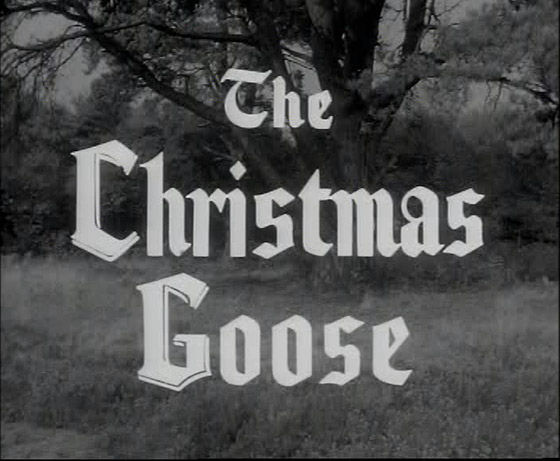
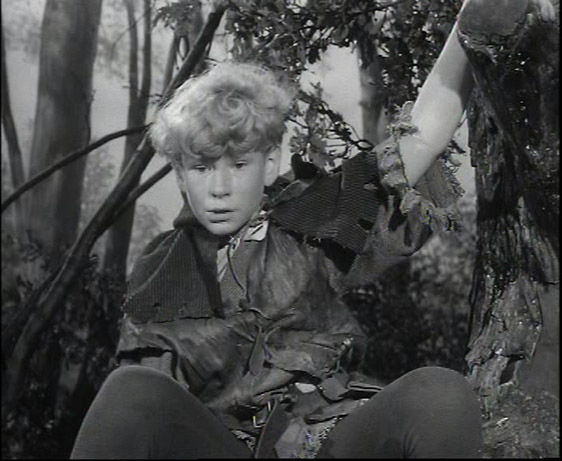
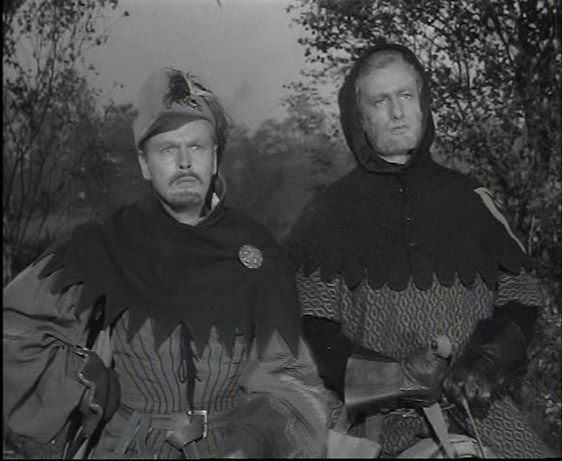
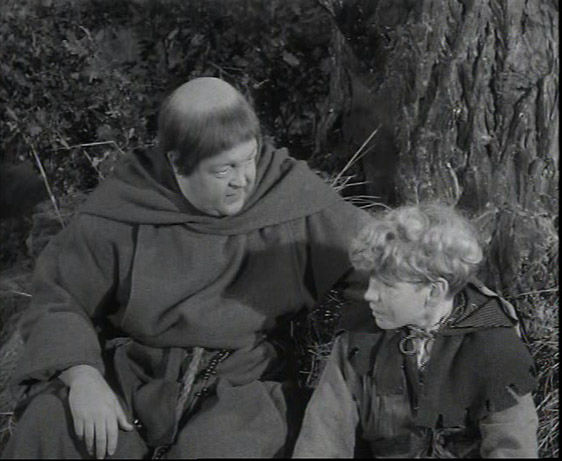
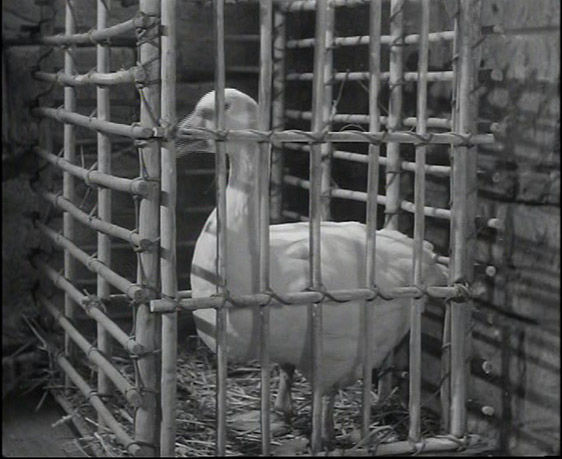
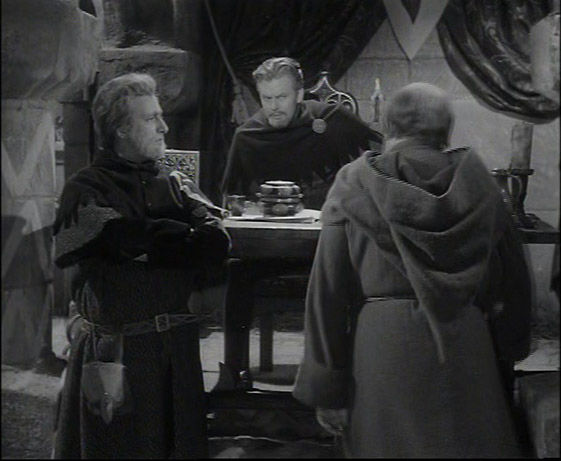
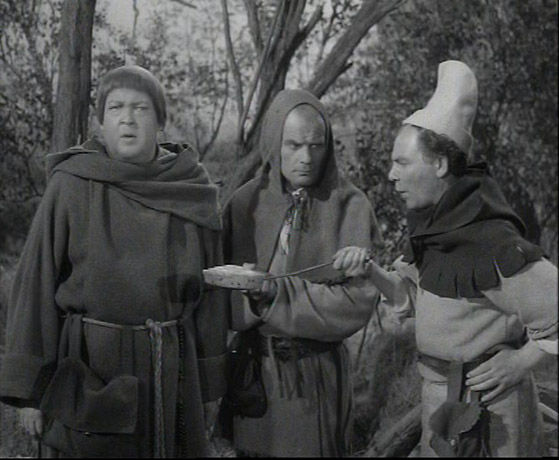
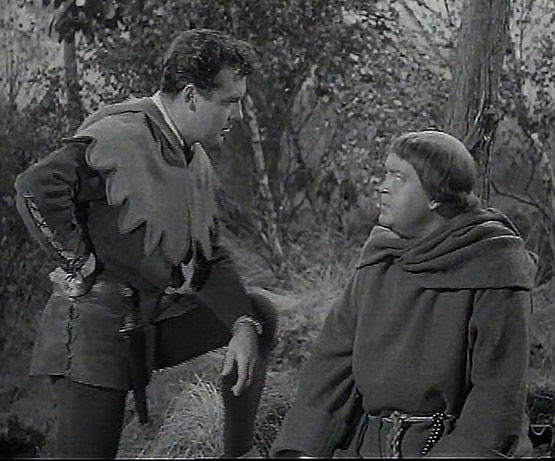
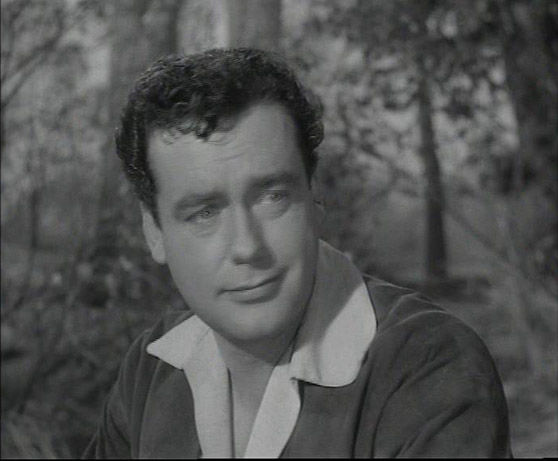
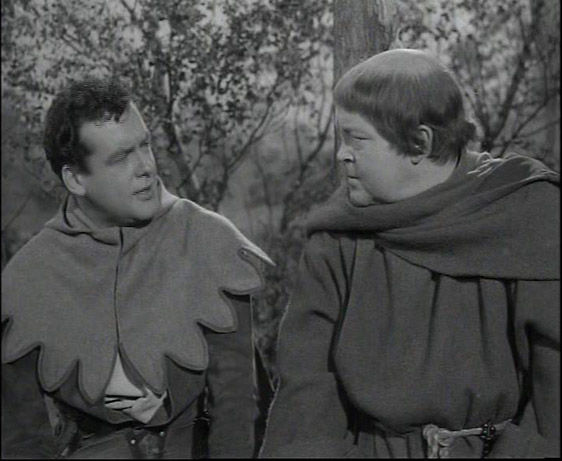
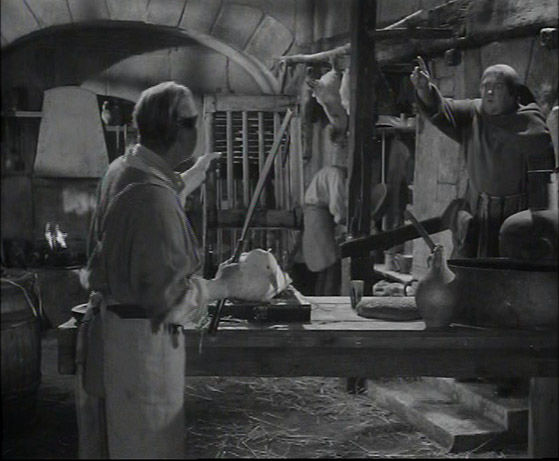
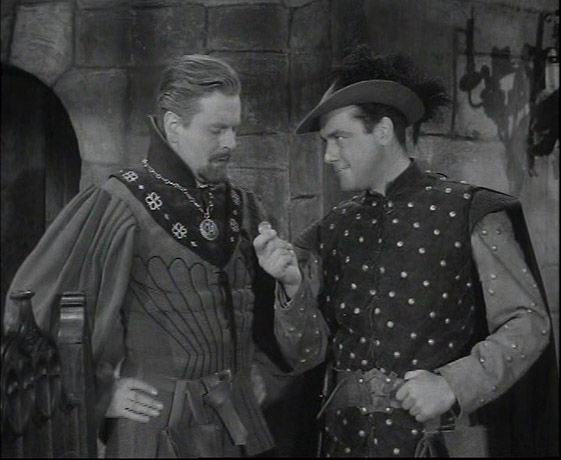
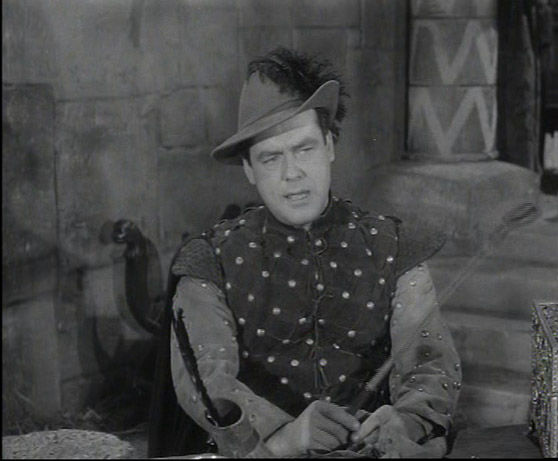
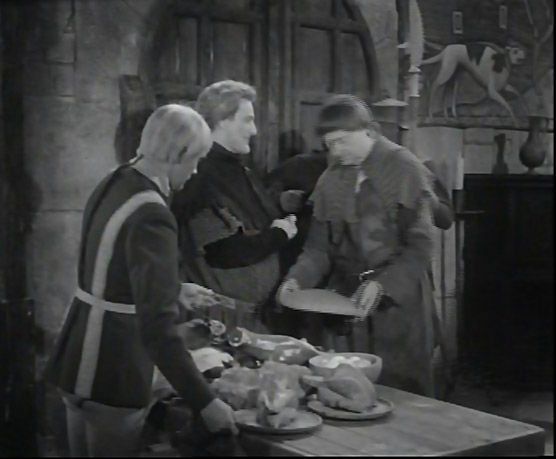
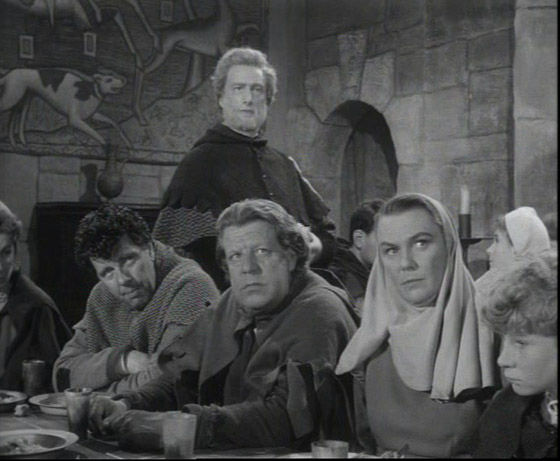
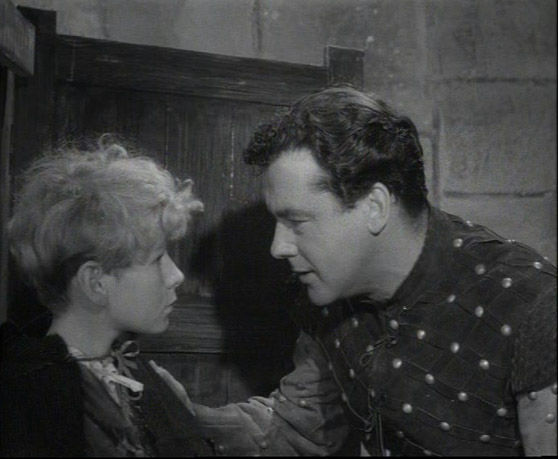
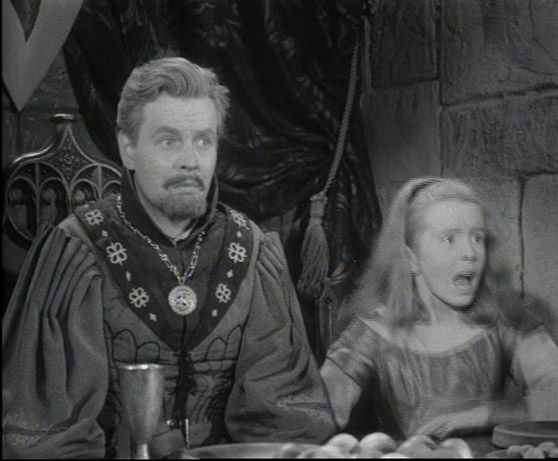
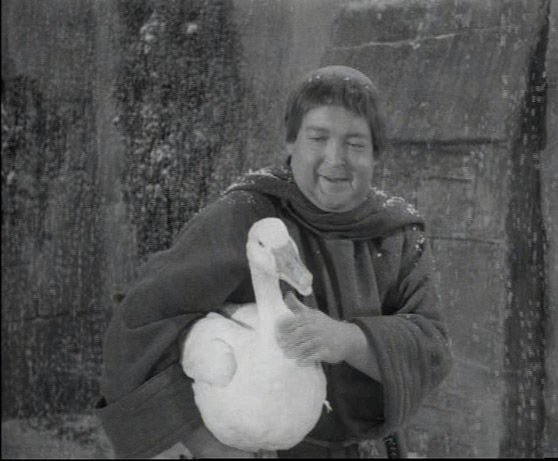
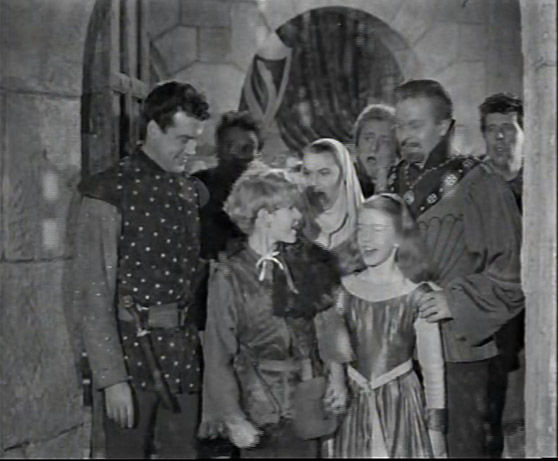
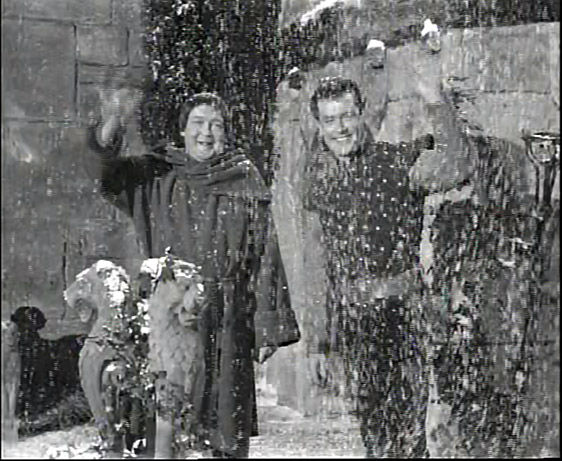
Contact Us